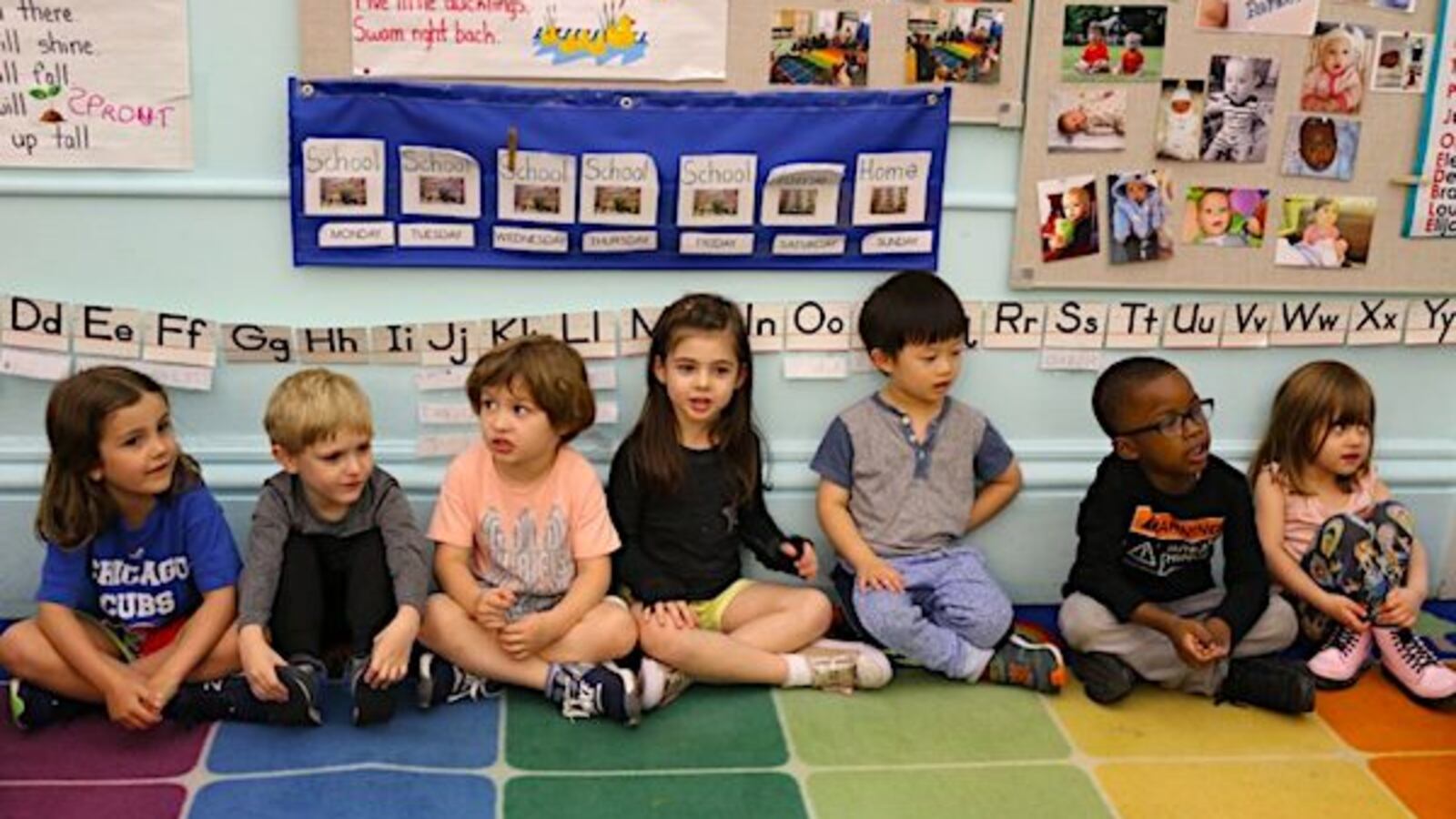Frustration over Tennessee’s lagging third-grade literacy rate is resurrecting discussion about whether the state is investing its money wisely for early childhood education.
Rep. Bill Dunn has re-filed a bill that would let school districts divert state funds from public pre-kindergarten classes to other needs in early grades if they think the dollars could be better spent.
“Right now, we’re spending close to $90 million annually on an early education program that our own studies show isn’t delivering the results we want, and it’s even getting negative results,” said the Knoxville Republican, a frequent critic of Tennessee’s publicly funded pre-K program.
He wants local flexibility to shift pre-K dollars to pay for needs like smaller kindergarten class sizes and more reading specialists or teacher coaches for early grades. Another idea: Instead of yearlong pre-K classes for 4-year-olds, a district could provide an abbreviated program in the six to eight weeks before kindergarten begins.
Dunn’s bill, co-sponsored by Sen. Dolores Gresham of Somerville, is the first early education proposal filed in 2019 after little legislative activity on that front last year. Lawmakers have wanted to give sweeping changes under a 2016 law time to work to improve the quality of Tennessee’s pre-K program, which launched in 2005 as states looked for ways to help low-income students facing unequal educational opportunities.
Tennessee’s pre-K overhaul came a year after a landmark study by Vanderbilt University found that children who didn’t participate in the program actually showed better academic outcomes over time than those who did.
As a result, the state changed how it funds its 900-plus pre-K classrooms, awarding money to districts based on the quality of their programming instead of the number of needy students they serve. It’s also tried to make strategic investments to improve reading in the early grades.
Last year, Tennessee’s reading scores increased by more than 2 percentage points so that almost 37 percent of third-graders were reading on or above grade level. But to reach its goal of 75 percent by 2025, the state will have to move 5 to 6 percentage points more third-graders to proficiency every year.
Dunn is not encouraged.
“It just hasn’t panned out,” he said of the state’s efforts. “We’ve done this for 10 years and where’s our reading levels? It’s time to deal with the facts.”

Dunn proposed similar legislation in 2017 to pilot a program that would have let five districts come up with other ways to spend their pre-K money. But his bill never made it out of a House subcommittee as colleagues urged patience to let reforms play out.
The Knoxville legislator has since been elected to the House’s No. 2 leadership position, and the chairwoman of the Senate Education Committee has signed on as co-sponsor of his 2019 bill.
“We have a limited amount of funds,” Dunn said. “What we always hear from the locals is for the state to quit sending us money with strings attached — that they know how to use it better. This is a perfect opportunity to let them try.”
Rep. Mark White, chairman of the House Education Committee, said he’s open to discussing Dunn’s proposal, but he doesn’t want to siphon off pre-K dollars.
“My position is that we need to find new dollars for what Rep. Dunn wants and not hurt our current pre-K system,” said White, a Republican from Memphis.
Legislation is expected to be filed soon that would do just that. Tennesseans for Quality Early Education, a nonprofit group formed in response to the Vanderbilt study’s findings, is working on a bill that would pay for literacy and math coaches for both pre-K and kindergarten, according to executive director Mike Carpenter.
“We all agree that it’s critical for children to be reading on grade level by the end of third grade,” Carpenter said. “If we can find common ground on that, surely we can find the resources to invest in evidence-based practices that are going to improve literacy.”
Carpenter lauded the state’s current efforts to address inconsistent quality across Tennessee’s pre-K classrooms. He also warned that pre-K is not an inoculation against poor instruction later on.
“Historically we’ve put pressure on pre-K to be the silver bullet for all future learning,” Carpenter said. “It’s a critical foundational step, but we also have to commit to sustaining those gains in subsequent grades.”

